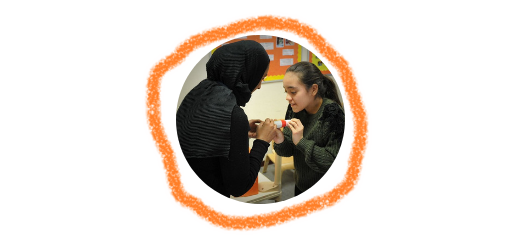
This page was written in 2019. The Children and Young People's Health Partnership has been integrated into the Child Health Integrated Learning and Delivery System (CHILDS) at Evelina London. To find out more about our services, visit the patch community nursing team pages and the CHILDS framework website.
Stopping asthma attacks before they start
Hosted by Evelina London, The Children and Young People's Health Partnership (CYPHP) is an alliance of health professionals bringing care out of hospitals and into the community to intervene early and prevent long-term disease. Dr Ingrid Wolfe and Dr Claire Lemer explain why if we want to avoid adding to the number of frail elderly, we need to influence habits in childhood.
(Disclaimer: these articles discuss themes that may be upsetting to some readers.)
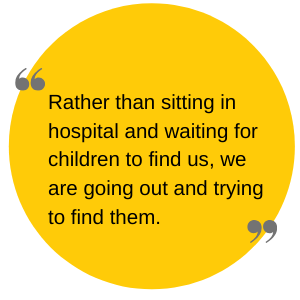 Preventing crisis
Preventing crisis
Nasar Ahmed, 14, had a severe asthma attack at school in east London in November 2016. He was admitted to hospital but later died.
Ellie May, 5, died after an asthma attack in Newport, Wales in 2015. Sam Linton, 11, died after an attack at school in Stockport. Ella Kissi Debrah, 11, from south London, died in 2013.
Each of these children received emergency medical help. But by the time it came, it was too late. Instead of waiting for children to arrive through the hospital doors when they are already seriously ill, could we identify and treat them at an earlier stage and plan to prevent their illness developing into a crisis?
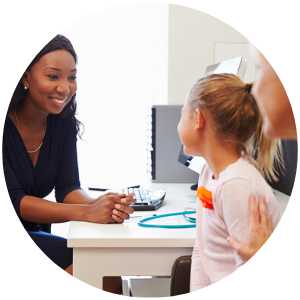 Ingrid Wolfe, a consultant in children’s public health medicine at Evelina London Children’s Hospital, says we can. Britain has the worst record on asthma and respiratory deaths among comparable countries, according to the Royal College of Paediatrics and Child Health. What is true of asthma is true of many other childhood conditions and the picture is deteriorating, especially for the poorest children. Obesity, for example, is at record levels.
Ingrid Wolfe, a consultant in children’s public health medicine at Evelina London Children’s Hospital, says we can. Britain has the worst record on asthma and respiratory deaths among comparable countries, according to the Royal College of Paediatrics and Child Health. What is true of asthma is true of many other childhood conditions and the picture is deteriorating, especially for the poorest children. Obesity, for example, is at record levels.
In 2016, following a two-year pilot trial, Dr Wolfe and colleagues established the Children & Young People’s Health Partnership (CYPHP) in Lambeth and Southwark, an alliance of consultant paediatricians and psychiatrists from three hospitals (Evelina London, King’s College and the Maudsley), GPs, nurses, health professionals, commissioners and researchers, to bring care out of hospital and into the community, where it’s possible to do so.
“Rather than sitting in hospital and waiting for children to find us, we are going out and trying to find them,” she said.
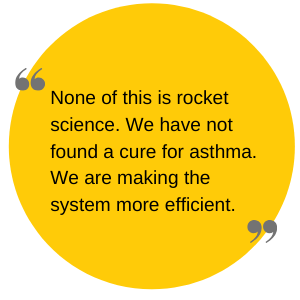 Why it’s not rocket science
Why it’s not rocket science
The partnership, which Dr Wolfe leads, is unique in Europe and early results suggest it is already having an impact. There has been a notable drop in Emergency Department (A&E) attendances and hospital admissions, showing the benefits of seeing children before they become ill. So far this year CYPHP have prevented 13 trips to A&E and five admissions to hospital for every 100 children with asthma.
There are two main prongs to the partnership. The first is focused on children with common or long-term conditions – starting with asthma, eczema, or constipation. From GP records, the CYPHP team used an algorithm to identify those whose condition and medication history suggested their health could be at risk.
Those families received a letter and text inviting them to complete a questionnaire asking about their physical and mental health – both the child’s and the parents’. Responses have revealed worries about housing, food, and finance which have direct impacts on children’s health.
These “Health Checks” are then used by the CYPHP team to develop packages of care, designed to meet the wider family’s needs, beyond the specific requirements of the child’s medical condition. This might include appointments with a paediatrician, involvement of a community nurse, or family therapy.
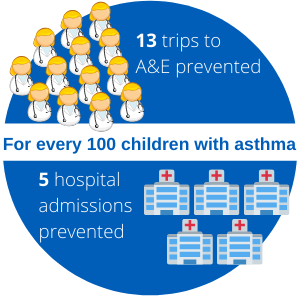
Results show the scheme is reaching the children most in need and hard-to-reach families, which is improving their quality of life. Parents can be signposted to agencies and benefits, and helped to care for their children. The number with asthma plans has increased, for example, so when their child develops a cold and starts coughing, parents know how to respond and prevent it developing into a crisis.
Claire Lemer, consultant in general paediatrics at Evelina London, and operational lead for CYPHP, said: “None of this is rocket science. We have not found a cure for asthma. We are making the system more efficient. Time spent on resuscitation could be saved by spending more time on prevention or early intervention.”
Opening up lines of communication
The second prong of the strategy is to deliver care for any child – not just those with chronic conditions – when and where it is needed by flattening the hierarchy between hospital specialists and GPs and opening up lines of communication. By creating small child health teams, in which everyone knows each other and can call any member for advice, including mental health workers, other specialists and non-health professionals such as teachers, care can be centred around the physical and emotional needs of the children.
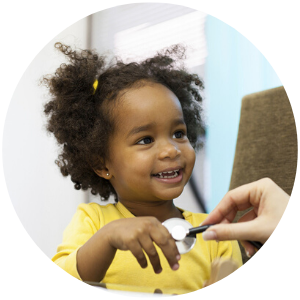 The boroughs have been divided into “patches”. Each patch has around five GP practices, and a telephone hotline set up, open from 9am to 7pm, for use by GPs to call a named consultant for instant advice about a patient, with an email alternative.
The boroughs have been divided into “patches”. Each patch has around five GP practices, and a telephone hotline set up, open from 9am to 7pm, for use by GPs to call a named consultant for instant advice about a patient, with an email alternative.
“A GP might ask about a child with suspected rickets and whether they should refer them? The consultant might say no, why don’t you do these blood tests first?” said Dr Lemer.
Once a month, consultants hold a CYPHP one-stop clinic in a GP practice – 16 clinics are now hosted in separate patches across the boroughs – and see all the patients referred by GPs in their patch. This is better for the children, who have shorter waiting times and receive specialist care delivered closer to home; better for the parents who listen more closely when they see the specialist sat next to the GP; and better for the doctors and nurses involved, who learn from each other and build strong inter-professional teams.
The one–stop community clinics have long been a proposed solution but have never been realised. Cultural challenges remain. Getting the conversation going between hospital specialists and GPs in order to build the partnership has been challenging, particularly managing expectations and maintaining relationships to keep engagement. But we are getting there now, and the end result is “incredibly strong partnerships” have been built and are thriving.
Support for teens
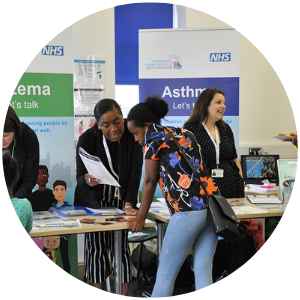 Teenagers present their own challenges. Dr Lemer cites the case of a young man with toothache, who claimed to have pulled out his own tooth rather than seek medical help. Young people like this often choose not to attend community care based facilities because they fear it looks “weak.” Dr Wolfe said: “A GP waiting room is full of old people and children. It’s not seen as a cool place. Young people tell us they prefer to go to A&E – with flashing blue lights and emergencies.”
Teenagers present their own challenges. Dr Lemer cites the case of a young man with toothache, who claimed to have pulled out his own tooth rather than seek medical help. Young people like this often choose not to attend community care based facilities because they fear it looks “weak.” Dr Wolfe said: “A GP waiting room is full of old people and children. It’s not seen as a cool place. Young people tell us they prefer to go to A&E – with flashing blue lights and emergencies.”
Barriers such as this have to be overcome. To help teenagers, a messaging service, Chat Health, has been set up enabling them to text a school nurse anonymously for advice, and CYPHP are working closely with partners to improve age-appropriate care.
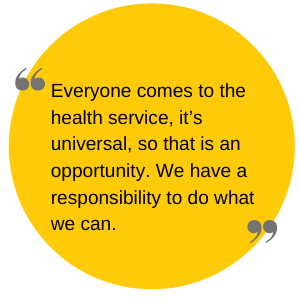 Enabling meaningful change
Enabling meaningful change
The scheme is supported by a £6.7 million grant over four years from The Guy’s and St Thomas’ Charity. The funding is tapered so that by 2020 responsibility will pass to the Lambeth and Southwark Clinical Commissioning Groups which have pledged to maintain the scheme, provided it can show evidence it has improved care and reduced demand on local hospitals.
To that end, its impact on quality of life, hospital attendances and cost effectiveness is being closely monitored. “Our hope is to curb demand so that, for example, waiting time targets can be met which means children are seen more quickly when they need care.” said Dr Wolfe. That may sound a modest ambition but it is not. A&E attendances at Evelina London grow annually.
It will take more than reform of the NHS to improve the health of children. Housing, education, environment and many other factors play a vital role. But CYPHP’s founders are clear the NHS must play its role.
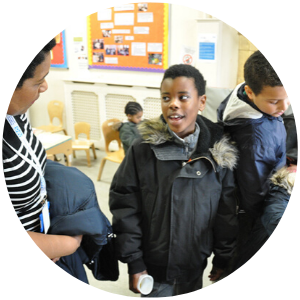 Dr Lemer said: “It is no good everyone saying someone else has to do it. Each of us has to take responsibility for our own bit. Most long-term disease starts in adolescence. So intervening early has the potential to impact for much longer, we know health depends on the habits established in childhood. There is an economic argument for investing in prevention earlier, but there is also a moral argument. It is a waste of a life to wait until someone is sick. If we want to improve the health of the nation, we should start in childhood.
Dr Lemer said: “It is no good everyone saying someone else has to do it. Each of us has to take responsibility for our own bit. Most long-term disease starts in adolescence. So intervening early has the potential to impact for much longer, we know health depends on the habits established in childhood. There is an economic argument for investing in prevention earlier, but there is also a moral argument. It is a waste of a life to wait until someone is sick. If we want to improve the health of the nation, we should start in childhood.
“We’re pleased that our work is starting to show results, early findings are demonstrating an impact and recent results show we are reaching a population in greater need. At entry to care, over 60% of children with ongoing conditions had poorly controlled symptoms. By seeing children earlier, and providing a more joined up response, our results show improved health, better quality of care, and reduced emergency contacts and admissions.”
Dr Wolfe added: “Everyone comes to the health service, it’s universal, so that is an opportunity. We have a responsibility to do what we can.”
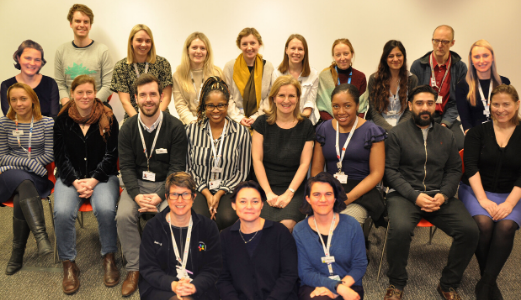 Pictured: The Children and Young People's Health Partnership team
Pictured: The Children and Young People's Health Partnership team
The ‘Spotlight on’ features were prepared for Evelina London by Jeremy Laurance, health writer.
This article has been adapted for use online.